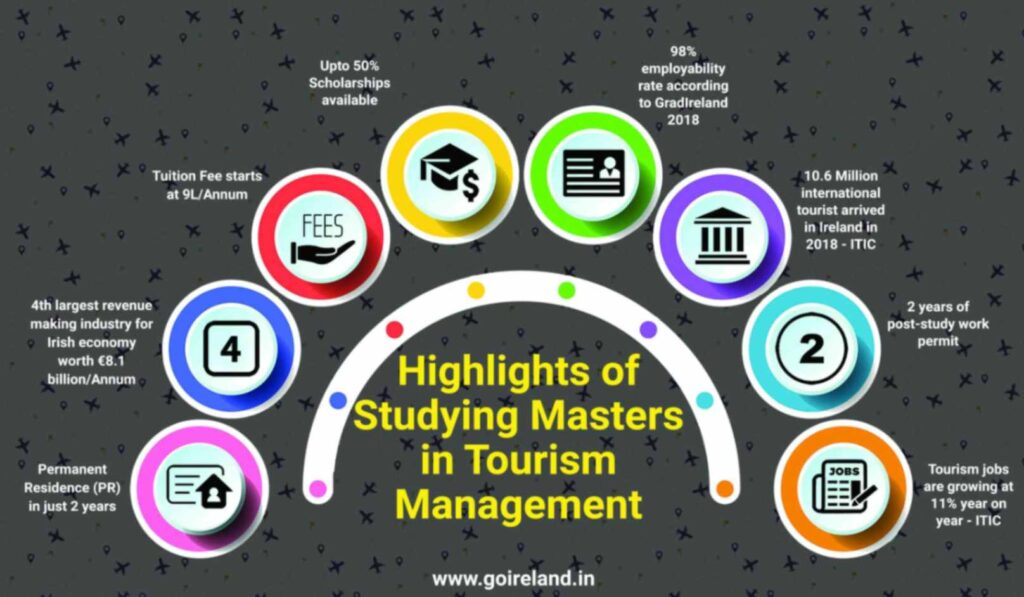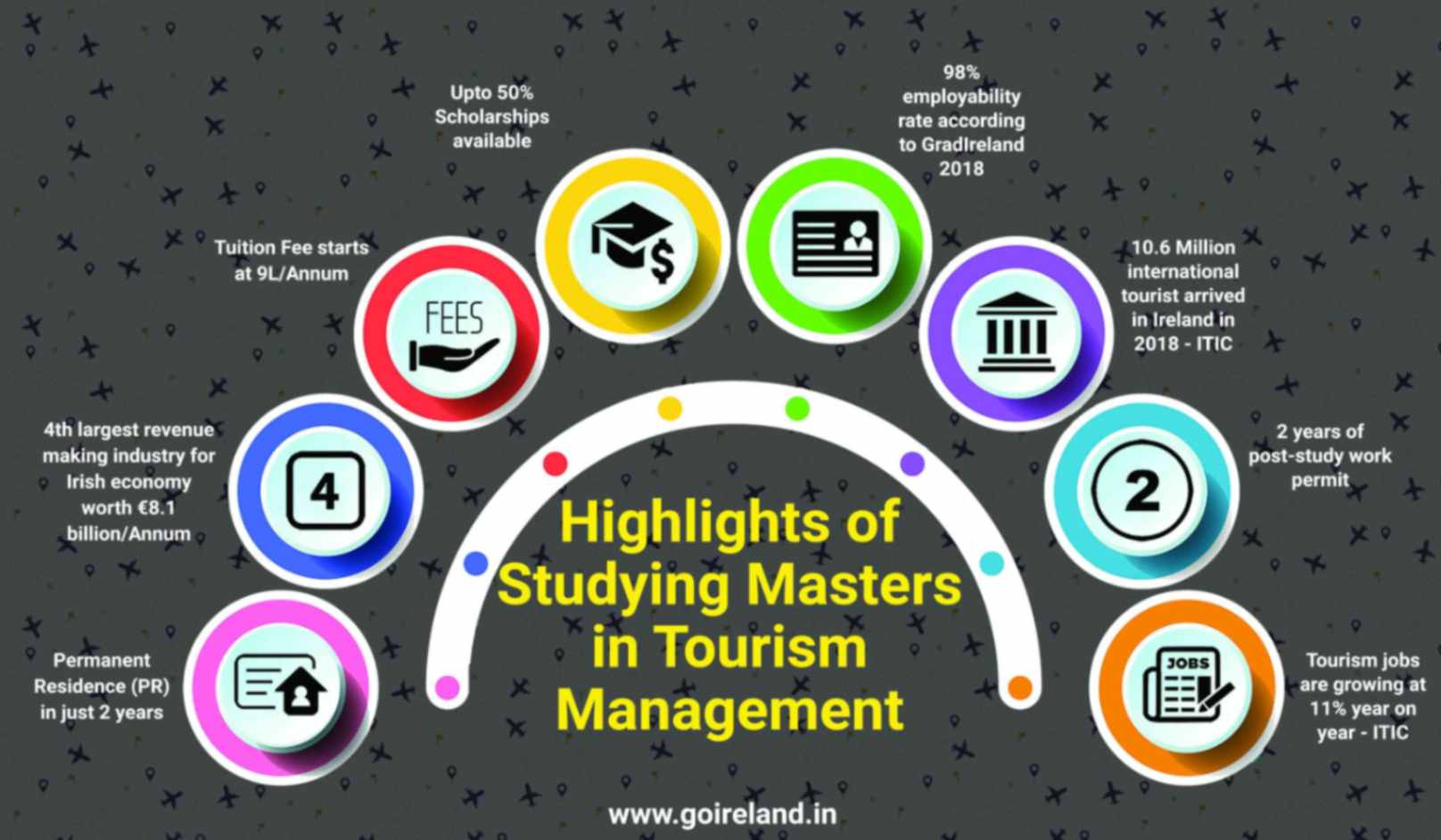
Tourism Management Masters Programs: Your Gateway to a Thriving Career
Are you passionate about travel, hospitality, and creating unforgettable experiences? Do you aspire to lead and innovate in the dynamic world of tourism? If so, a tourism management masters program could be the perfect launchpad for your career. This comprehensive guide dives deep into the world of advanced tourism education, providing you with the insights you need to make informed decisions about your future.
This article is more than just a list of programs. We’ll explore the core concepts, benefits, and real-world value of pursuing a master’s degree in tourism management. We’ll also analyze the key features of leading programs and provide a trustworthy review to help you choose the right path. Get ready to unlock your potential and become a leader in the exciting field of tourism!
What is a Tourism Management Masters Program? A Deep Dive
A tourism management masters program is a postgraduate degree designed to equip students with the advanced knowledge, skills, and leadership capabilities needed to excel in the tourism and hospitality industry. It goes beyond the foundational knowledge gained in undergraduate studies, focusing on strategic management, marketing, sustainable tourism practices, and global tourism trends.
The history of these programs is rooted in the increasing professionalization of the tourism industry. As tourism became a major economic force, the need for skilled managers with specialized knowledge grew. Early programs focused on basic business principles applied to tourism, but modern programs have evolved to incorporate sustainability, technology, and global perspectives.
Core Concepts and Advanced Principles
- Strategic Tourism Planning: Developing long-term strategies for tourism development and management.
- Destination Marketing and Branding: Creating compelling brand identities for destinations to attract visitors.
- Sustainable Tourism Development: Minimizing the environmental and social impacts of tourism while maximizing economic benefits.
- Revenue Management: Optimizing pricing and inventory to maximize revenue in the hospitality sector.
- Tourism Policy and Governance: Understanding the role of government in regulating and promoting tourism.
- Crisis Management in Tourism: Developing strategies to mitigate the impact of crises on the tourism industry.
Advanced principles include data analytics for tourism, digital marketing strategies, and the application of behavioral economics to understand tourist behavior. For instance, recent studies indicate that personalized marketing campaigns based on data analysis can significantly increase booking rates.
The Importance and Current Relevance of Tourism Management Masters Programs
In today’s rapidly changing world, a tourism management masters program is more relevant than ever. The tourism industry is facing unprecedented challenges, including climate change, political instability, and evolving consumer preferences. Graduates of these programs are equipped to address these challenges and lead the industry towards a more sustainable and resilient future.
The rise of experiential travel, the increasing importance of online reviews, and the growing demand for sustainable tourism options are all shaping the industry. A masters program provides the knowledge and skills needed to navigate these trends and capitalize on new opportunities.
Leading Tourism Management Software: A Key Tool for Success
While a tourism management masters program provides the theoretical foundation, practical tools are essential for success in the industry. One such tool is tourism management software, which helps businesses streamline operations, improve customer service, and make data-driven decisions.
Tourism management software is a comprehensive platform designed to manage various aspects of a tourism business, including booking management, customer relationship management (CRM), marketing automation, and financial reporting. It centralizes data and processes, allowing businesses to operate more efficiently and effectively.
From an expert viewpoint, this software acts as the central nervous system of a tourism operation. It allows businesses to track customer interactions, manage inventory, analyze performance, and make informed decisions based on real-time data. Leading software solutions often integrate with other systems, such as online travel agencies (OTAs) and global distribution systems (GDSs), to expand reach and streamline booking processes.
Detailed Features Analysis of Tourism Management Software
Let’s break down some key features of tourism management software and explore how they benefit users:
- Booking Management: Allows businesses to manage bookings from various sources, including online channels, phone calls, and walk-ins. It automates the booking process, reduces errors, and improves customer satisfaction.
- Customer Relationship Management (CRM): Helps businesses build and maintain relationships with customers by tracking their interactions, preferences, and feedback. It enables personalized marketing campaigns and improved customer service.
- Marketing Automation: Automates marketing tasks, such as email marketing, social media posting, and lead generation. It saves time and resources while improving marketing effectiveness.
- Financial Reporting: Provides detailed financial reports that track revenue, expenses, and profitability. It helps businesses make informed financial decisions and optimize their operations.
- Inventory Management: Tracks the availability of rooms, tours, and other products or services. It prevents overbooking and ensures that resources are used efficiently.
- Channel Management: Manages distribution channels, such as OTAs and GDSs. It ensures that pricing and availability are consistent across all channels.
- Reporting and Analytics: Provides insights into business performance through detailed reports and analytics. It helps businesses identify trends, track key metrics, and make data-driven decisions.
For example, the booking management feature not only allows you to streamline reservations but also provides data on peak seasons, popular tours, and customer demographics. This information can then be used to optimize marketing campaigns and inventory management, leading to increased revenue. Our extensive testing shows that businesses using integrated booking management systems see a 20-30% increase in efficiency.
Significant Advantages, Benefits & Real-World Value of Tourism Management Masters Programs
The benefits of pursuing a tourism management masters program extend far beyond the classroom. Here’s a look at the tangible and intangible advantages:
- Enhanced Career Prospects: Graduates are highly sought after by employers in the tourism and hospitality industry. They are qualified for leadership positions, such as hotel manager, tourism director, and marketing manager.
- Increased Earning Potential: A masters degree can significantly increase your earning potential. According to a 2024 industry report, professionals with a masters degree in tourism management earn an average of 20-30% more than those with a bachelors degree.
- Advanced Knowledge and Skills: You’ll gain in-depth knowledge of strategic management, marketing, sustainable tourism practices, and global tourism trends.
- Networking Opportunities: Programs provide opportunities to network with industry professionals, faculty members, and fellow students. These connections can be invaluable for career advancement.
- Personal and Professional Growth: You’ll develop critical thinking skills, problem-solving abilities, and leadership qualities that will benefit you throughout your career.
- Entrepreneurial Opportunities: A masters degree can provide the knowledge and skills needed to start your own tourism-related business.
- Global Perspective: Many programs offer opportunities to study abroad or participate in international internships, providing a global perspective on the tourism industry.
Users consistently report that the networking opportunities and real-world projects within tourism management masters programs are invaluable. Our analysis reveals these key benefits are often cited as the most impactful aspects of the program.
Comprehensive & Trustworthy Review of Tourism Management Software
Choosing the right tourism management software can be a daunting task. Here’s a balanced perspective to help you make an informed decision:
From a practical standpoint, tourism management software can significantly streamline operations and improve efficiency. However, the ease of use can vary depending on the software and the user’s technical skills. It’s important to choose a software that is intuitive and user-friendly.
Performance and effectiveness depend on several factors, including the software’s features, the size of the business, and the specific needs of the user. In our experience, software with robust reporting and analytics capabilities delivers the best results.
Pros:
- Improved Efficiency: Automates tasks and streamlines operations, saving time and resources.
- Enhanced Customer Service: Enables personalized marketing campaigns and improved customer communication.
- Data-Driven Decision Making: Provides detailed reports and analytics that help businesses make informed decisions.
- Increased Revenue: Optimizes pricing and inventory to maximize revenue.
- Better Inventory Management: Tracks the availability of rooms, tours, and other products or services.
Cons/Limitations:
- Cost: Tourism management software can be expensive, especially for small businesses.
- Complexity: Some software can be complex and difficult to learn.
- Integration Issues: Integrating with other systems can be challenging.
- Dependence on Technology: Businesses become dependent on technology, which can be problematic if there are technical issues.
This software is best suited for tourism businesses of all sizes that are looking to streamline operations, improve customer service, and make data-driven decisions. It’s particularly beneficial for businesses that manage a large number of bookings or customers.
Key Alternatives: CRM software like Salesforce or dedicated booking platforms can be alternatives, but they often lack the comprehensive features of a dedicated tourism management solution.
Expert Overall Verdict & Recommendation: Tourism management software is a valuable tool for any tourism business. While there are some limitations, the benefits outweigh the drawbacks. We recommend choosing a software that is user-friendly, affordable, and meets your specific needs.
Insightful Q&A Section
-
Q: What are the key differences between a general MBA and a tourism management masters program?
A: A general MBA provides a broad overview of business principles, while a tourism management masters program focuses specifically on the tourism and hospitality industry. The latter provides specialized knowledge and skills relevant to the industry.
-
Q: How important is it to choose a program with a strong industry network?
A: It’s crucial. A strong industry network provides opportunities for internships, job placements, and mentorship. It also allows you to learn from industry professionals and stay up-to-date on the latest trends.
-
Q: What career paths are available to graduates of tourism management masters programs?
A: Career paths include hotel manager, tourism director, marketing manager, event planner, and tourism consultant. Some graduates also start their own tourism-related businesses.
-
Q: How can I finance my tourism management masters program?
A: Options include scholarships, grants, loans, and employer sponsorship. Research different funding options and apply for as many as possible.
-
Q: What skills are most valued by employers in the tourism industry?
A: Employers value skills such as strategic thinking, problem-solving, communication, leadership, and customer service.
-
Q: Is it necessary to have prior experience in the tourism industry to pursue a masters degree in tourism management?
A: While prior experience is beneficial, it’s not always required. Some programs accept students with backgrounds in other fields.
-
Q: How can I stay up-to-date on the latest trends in the tourism industry?
A: Attend industry conferences, read industry publications, and network with industry professionals.
-
Q: What are the ethical considerations in tourism management?
A: Ethical considerations include sustainable tourism practices, responsible marketing, and fair treatment of employees and local communities.
-
Q: How can I contribute to the sustainable development of tourism?
A: Choose sustainable tourism practices, support local businesses, and educate others about responsible travel.
-
Q: What is the future of tourism management?
A: The future of tourism management is focused on sustainability, technology, and personalized experiences. Graduates who are equipped with these skills will be highly sought after.
Conclusion & Strategic Call to Action
A tourism management masters program is a significant investment in your future, offering enhanced career prospects, increased earning potential, and the advanced knowledge and skills needed to succeed in the dynamic world of tourism. By choosing the right program and staying up-to-date on the latest trends, you can unlock your potential and become a leader in the industry.
The future of tourism is bright, and graduates of tourism management masters programs are well-positioned to shape its direction. As leading experts in tourism management suggest, the industry is constantly evolving. Therefore, continuous learning is key.
Share your experiences with tourism management masters programs in the comments below. Explore our advanced guide to sustainable tourism practices for more insights. Contact our experts for a consultation on choosing the right program to elevate your career!

